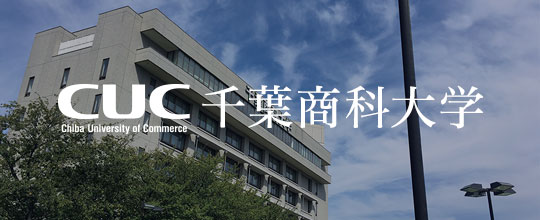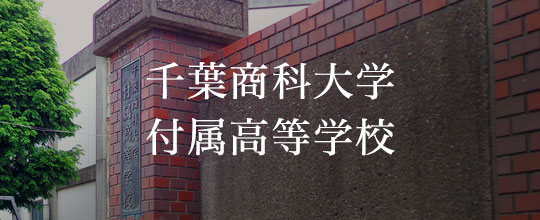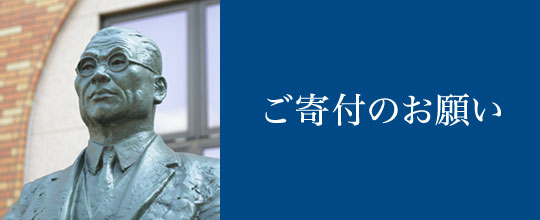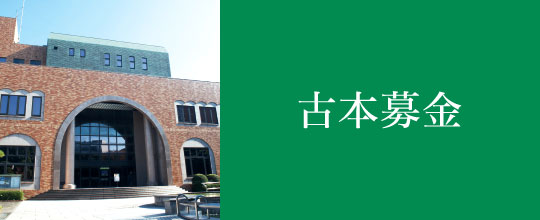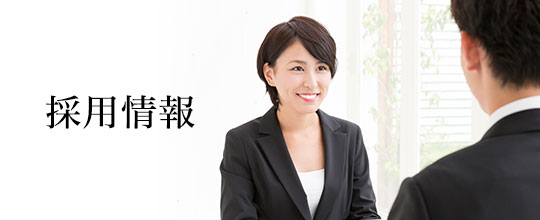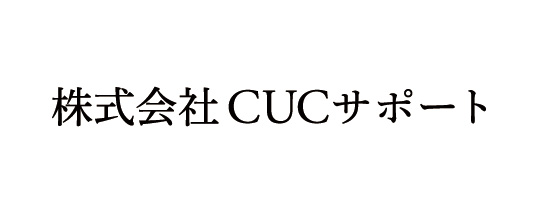第1章 総 則
(目 的)
第1条 この規程は、学校法人千葉学園(以下「学園」という。)に就学就労するすべての学生・生徒及び教職員が能力と個性を自由に発揮できることを目的とし、本学園における性別、社会的身分、人権又は国籍等に基づく不当な差別的取扱いその他のハラスメントの発生を防止するための教育及び啓発活動の展開並びにハラスメントに関する相談又は苦情の適切な処理について必要な事項を定める。
(定 義)
第2条 ハラスメントとは、性別、社会的身分、人種、国籍、信条、年齢、職業、身体的特徴等の属性、あるいは広く人格等に対する言動によって、相手方に不利益や不快感を与え、あるいはその尊厳を損なうことをいう。
(1) セクシュアル・ハラスメント
教育・研究、管理的業務に関連して、一方の当事者が他方の当事者の意に反する性的な発言や行動を行い、これにより他方の当事者に不利益や損害を与え、又は個人の尊厳若しくは人格を侵害することをいう。
(2) アカデミック・ハラスメント
教育・研究活動上指導的立場にある者が、その指導を受ける者に対し、不適切な言動や不当な取扱いをすることにより、その指導を受ける者の自由で主体的な学修活動や研究活動、円滑な職務遂行活動を妨げ、個人の尊厳又は人格を侵害することをいう。
(3) パワー・ハラスメント
管理的業務上優越的立場にある者が、その監督し、指導し、育成する権限を不当に行使し、又は職務遂行上従属的立場にある者に対し、就業の環境を悪化させることを示唆することにより、その意に反する不当な取扱いを行い、不利益や損害を与え、又は個人の尊厳若しくは人格を侵害することをいう。
(4) 妊娠・出産・育児休業等に関するハラスメント
上司や同僚が、教職員の妊娠・出産及び育児等に関して、制度の利用等に対する言動により教職員の就業環境を害すること、並びに妊娠・出産等に対する言動により女性教職員の就業環境を害することをいう。
(5) その他のハラスメント
前各号に該当しないが、相手の意に反して行われる不合理かつ不適切な言動によって、相手方に不快の念を抱かせ、就学、就労環境又は教育・研究環境に悪影響を及ぼすこと。
(適用範囲)
第3条 本規程は、次に掲げる者を対象とする。
(1) 学生(学部生、大学院生、付属高校生徒、科目等履修生、聴講生、交換留学生等、本学において教育を受ける全ての者)
(2) 教職員(役員、専任教職員、非常勤講師、契約職員、嘱託職員、本学において就業する派遣職員及び委託業務従事者等)
(3) 継続的に本学の教育・研究に関わる者(学外研究員、課外活動指導者等)
(4) 前3号以外の者であって、本号第1号から第3号までの対象者と教育研究もしくは学園内業務において関係を有し、ハラスメント防止対策委員会が措置を必要と判断する場合。
2 本規程は、ハラスメントを受けたとされる者またはハラスメント行為を行ったとされる者が、前項の学生、教職員等である場合に適用する。
(ハラスメント申し立て)
第3条の2 ハラスメントの被害を受けた者は、第4条に定めるハラスメント防止対策委員会に対し、次の各号のいずれかの申し立てを行うことができる。
(1) 通知 相手方にハラスメント行為があったことを認識させるもの。
(2) 調停 当事者の話し合いにより解決を図るもの。
(3) 裁定 申し立て内容の事実関係を調査し解決を図るもの。
2 申し立ては、ハラスメントの被害を受けた本人が、ハラスメント防止対策委員会に対し、書面で行うものとする。
第2章 ハラスメント関連委員会等の設置
(設 置)
第4条 学園にハラスメント防止のため、次の委員会等を置く。
(1) ハラスメント防止対策委員会(以下「防止対策委員会」という。)
(2) ハラスメント相談員(以下「相談員」という。)
(3) ハラスメント調停委員会(以下「調停委員会」という。)
(4) ハラスメント調査委員会(以下「調査委員会」という。)
(5) 懲戒委員会
第3章 防止対策委員会
(構 成)
第5条 防止対策委員会の構成員は次の通りとし、常任理事会の議を経て理事長が委嘱する。
(1) 理事長が指名した者 1人
(2) 大学の教育職員のうちから学長が指名した者 10人
(3) 高校の教職員のうちから校長が指名した者 2人
(4) 法人及び大学の事務職員のうちから法人事務局長が指名した者 6人
2 委員の構成に当たっては、男女のバランスに配慮するものとする。
(任 務)
第6条 防止対策委員会の任務は、次の通りとする。
(1) ハラスメント等による人権侵害を防止するための調査及び啓発に関すること。
(2) ハラスメントの紛争解決及び当事者への通知に関すること。
(3) 相談員の統括及び管理・監督に関すること。
(4) ハラスメントについて理事長から諮問のあった事項に関すること。
(5) 学園におけるハラスメントの公表に関すること。
(6) その他、ハラスメント防止に関すること。
(任 期)
第7条 委員の任期は3年とする。ただし、再任を妨げない。
2 委員が任期の途中で辞任した場合、後任者の任期は、前任者の残存期間とする。
3 任期満了に伴う選任に当たっては、少なくとも委員のうちの半数は留任とする。
(委員長等)
第8条 防止対策委員会に委員長および副委員長を置き、理事長の指名とする。
2 委員長に事故あるときは、副委員長がその職務を代行する。
3 委員長は防止対策委員会を招集し、その議長となる。
4 相談員から相談内容の報告があった場合には、委員長は防止対策委員会を招集しなければならない。
5 1/3以上の委員から委員会開催の要請があった場合には、委員長は2週間以内に防止対策委員会を招集しなければならない。
(議 決)
第9条 防止対策委員会は、委員の過半数が出席しなければ議事を開き、議決することはできない。
2 防止対策委員会の議事は出席した委員の過半数で決し、可否同数のときは委員長の決するところによる。
(委員以外の扱い)
第10条 委員長は、必要があると認めるときは、防止対策委員会の議を経て委員以外の者の出席を求めることができる。
(報告及び通知)
第11条 防止対策委員会は、ハラスメントの救済・処分及び環境の改善のためにとるべき措置、その他個別の事案への対応策をまとめたときは、直ちに理事長に報告しなければならない。
2 防止対策委員会は、申し立てに関する調査結果及び委員会の判断について、申立人及び被申立人に結果を通知するものとする。
(措 置)
第12条 理事長は、前条の報告を受けたときは、直ちに必要な措置を講ずるものとする。
2 前項のうち教職員の処分については第7章の規定によるものとし、学生・生徒の処分については、学長又は校長に委ねるものとする。
第4章 相談員
(相談窓口)
第13条 学園は、ハラスメントの被害を受けた者より、その保護や救済について相談を受け付けるため、相談窓口を設け、公表する。
2 相談窓口の担当者は、ハラスメントに関する相談・通報があったときは、次条に定める相談員を紹介し、相談員に連絡するものとする。
(相談員)
第14条 学園は、ハラスメントの相談・通報に応じるために相談員を置く。
(委 嘱)
第15条 相談員は、次に掲げる基準に基づき理事長が委嘱する。
(1) 大学の教育職員のうちから学長が指名した者若干名
(2) 高校の教職員のうちから校長が指名した者若干名
(3) 法人及び大学の事務職員のうちから法人事務局長が指名した者若干名
2 必要に応じて外部のハラスメントに関する専門的知識を持つ者を相談員に加えることができる。
3 相談員の委嘱に当たっては、男女のバランスに配慮するものとする。
(任 務)
第16条 相談員の任務は、次の通りとする。
(1) ハラスメントの被害を受けた旨の申し立てがあった場合、直ちに相談に応ずること。
(2) 調停又は裁定の申し立てを受けたときは相談に応じ、その手続きの説明を行うこと。
(3) ハラスメントの相談内容を防止対策委員会に報告すること。
(4) 申立人に対し必要に応じて専門的カウンセラーを紹介し、若しくは医療的対応が必要な場合に適切な措置を講ずること。
(5) ハラスメントを防止し、かつ啓発するために必要な活動を行うこと。
(任 期)
第17条 相談員の任期は2年とする。ただし、再任を妨げない。
2 相談員が任期の途中で辞任した場合、後任者の任期は、前任者の残存期間とする。
3 任期満了に伴う選任に当たっては、少なくとも相談員のうちの半数は留任とする。
(公 示)
第18条 学園は、相談員の氏名、所属、連絡用電話及び電子メールアドレスを学園が発行するホームページに公示するものとする。
(相談方法)
第19条 申立人は、相談員と直接面談するほか、手紙、電話又は電子メール等でも相談を行うことができる。
(協議等)
第20条 相談員は、当該事案について必要な場合は、他の相談員とその対応について協議するほか、カウンセラー等の専門家に意見を求めることができる。
(報 告)
第21条 相談員は、ハラスメントについて相談に応じた内容及び対応の経緯について防止対策委員会に報告しなければならない。
2 相談員は、事態が重大で速やかな措置が必要であると認めたときは、直ちに防止対策委員会にその旨を報告しなければならない。
3 相談員は、第1項及び前項の報告を行った後において重要な事実を知り得たときは、直ちに防止対策委員会にその旨を報告しなければならない。
(遵守事項)
第22条 相談窓口の担当者及び相談員は、任務を遂行するに当たり次の事項を遵守しなければならない。
(1) 申立人の名誉及びプライバシー等の人格権を侵害することのないよう慎重に対処すること。
(2) 申立人の意向をできる限り尊重し、解決策を押しつけることのないよう留意すること。
(3) 申立人に対する救済や対応策を講じるにあたって、ハラスメントにあたるような言動を行わないこと。
第5章 調停委員会
(設 置)
第23条 防止対策委員会は、ハラスメントに関して申立人から調停の申し立てがあり、防止対策委員会が必要と認めたときは、調停委員会を設けなければならない。
(任 務)
第24条 調停委員会は、申立人及び被申立人の話し合いにより問題を解決することができるよう調停を進めることを任務とする。
2 調停委員会は、調停に当たっては、当事者がハラスメントについての認識を深めることができるよう配慮するものとする。
(構成)
第25条 調停委員会は、原則として4人以内とし、防止対策委員会において選任する。
(選 任)
第26条 構成員の選任にあたっては、次の事項に留意しなければならない。
(1) 男女のバランスに配慮すること。
(2) 当事者所属部署の関係者をできるだけ除外すること。
2 調停委員会には、必要に応じて外部の専門家若しくは弁護士を委員として加えることができる。
(任 期)
第27条 委員の任期は、当該事案に関する調停委員会の任務が終了したときまでとする。
(委員長)
第28条 調停委員会の委員長は、調停委員会で決めるものとする。
2 調停委員会は、委員長が責任者となり調停の進行を統括する。
(通 知)
第29条 調停委員会は、申立人からの調停の申し出に応じて直ちに調停の日時及び場所を決め、当事者に通知する。
(付添人)
第30条 当事者が未成年に限り、調停に際して付添人を1人つけることができる。但し付添人は、当事者の主体的な判断による解決を阻害しないように配慮するとともに、当事者と同様に守秘義務を遵守するものとする。
(命 令)
第31条 調停委員会は、必要と認める場合には、調停前及び調停中の措置として、被申立人に対して、調停の内容の実現を不能にし、若しくは著しく困難にするおそれのある行為の停止又は排除を命ずることができる。
(注意義務)
第32条 調停委員会及び調停委員は、調停を進めるにあたり、次の事項に注意しなければならない。
(1) 委員会として何らかの解決策を当事者に押しつけることのないよう配慮すること。
(2) 調停にあたり、被害者の抑圧や被害の揉み消しになるような言動を慎むこと。
(3) 被申立人から「同意があった」旨の抗弁があった場合は、その有無についての証明責任を申立人に負わせないこと。
(調停の終了)
第33条 調停は、次の各号の一に該当したときをもって終了することができる。
(1) 当事者間で書面による合意が成立したとき。
(2) 当事者が調停の途中で調停の打ち切りを申し出たとき。
(3) 調停委員会が、相当期間内に当事者間に合意が成立する見込みがないと判断したとき。
(報 告)
第34条 調停委員会は、調停が終了した場合には、直ちに防止対策委員会に経過及び結果を報告しなければならない。
第6章 調査委員会
(設 置)
第35条 防止対策委員会は、次の各号の一に該当する場合は、ハラスメントの事実関係について調査を行うため調査委員会を設置する。
(1) 申立人からハラスメントの裁定の申し立てがあり、防止対策委員会が必要と判断したとき。
(2) 申立人による申し立てが無い場合においても、防止対策委員会が救済、制裁及び環境改善のための措置が必要と判断したとき。
(任 務)
第36条 調査委員会は、ハラスメントの事実関係について調査した結果を、前条第1号の申し立てがあったとき、又は前条第2号の判断がなされたとき以後2カ月以内に、防止対策委員会に報告しなければならない。ただし、2カ月以内に調査が完了しないときでやむを得ない事由がある場合には、相当期間延長することができる。
2 前項の任務遂行のため、調査委員会は次のことを行う。
(1) 当事者及び関係者から事情を聴取すること。
(2) その他、当該事案の事実関係を明らかにするために必要な事項。
3 前項において聴取を求められた当事者は、正当な理由なくこれを拒むことはできない。
(人 数)
第37条 調査委員会委員は、1つの事案につき4人以内とし、防止対策委員会において選任する。
(選 任)
第38条 防止対策委員会は、調査委員会委員の選任に当たっては、委員会の客観性、中立性及び公平性を確保するため、次の事項に留意しなければならない。
(1) 男女のバランスに配慮すること。
(2) 当事者所属部署の関係者をできるだけ除外すること。
2 調査委員会には、必要に応じて外部の専門家若しくは弁護士を委員として加えることができる。
(任 期)
第39条 委員の任期は、当該事案に関する調査委員会の任務が終了したときまでとする。
(兼 務)
第40条 委員は、複数の事案の調査委員となることができる。
(委員長)
第41条 調査委員会の委員長は、防止対策委員長が指名する。
2 委員長は、調査委員会を招集し、その議長となる。
(委員以外の扱い)
第42条 委員長は、必要があると認めるときは、調査委員会の議を経て、委員以外の者の出席を求めることができる。
(注意義務)
第43条 調査委員会及び委員は、調査を進めるにあたり、次の事項に注意しなければならない。
(1) 調査に当たり、被害者の抑圧や被害の揉み消しになるような言動を慎むこと。
(2) 被申立人から「同意があった」旨の抗弁があった場合は、その有無についての証明責任を被害者に負わせないこと。
(調査の終了)
第44条 調査は、次の各号の一に該当したときをもって終了することができる。
(1) 調査委員会の調査が終了したとき。
(2) 2カ月以内に調査が完了せず、相当期間延長しても完了する見込みがないとき。
(3) 調査の結果、申し立てが第2条に規定するハラスメントに該当しないと判断したとき。
(4) その他、調査委員会が調査の必要がなくなったと判断したとき。
(報 告)
第45条 調査委員会は、調査が終了した場合には、直ちに防止対策委員会に経過と結果を報告しなければならない。
(不服申立て)
第45条の2 当事者は、防止対策委員会から通知された結果について不服がある場合は、結果を通知した日から14日以内(その期間の末日が休日に当たる場合はその翌日をもって期間満了とする。)に、事実認定に影響を及ぼす具体的な事由を付した書面をもって防止対策委員会に不服申し立てをすることができる。
2 防止対策委員会は、不服の申し立てについて、受理又は棄却を決定し、受理したときには再調査又は再審議を行う。
3 防止対策委員会は、再調査又は再審議を行うことを決定した場合には、当事者双方に遅滞なくその旨を通知しなければならない。
4 防止対策委員会は、再調査をする場合は、当該事案の調査委員会の委員全員を入れ替えて行うものとする。
第7章 懲戒委員会
(設 置)
第46条 理事長は、防止対策委員会から教職員の処分について報告があったときは2週間以内に懲戒委員会に、その対応について諮問しなければならない。
第8章 遵守義務
(委員等及び当事者等の義務)
第47条 各委員会の委員、相談員及び相談窓口担当者は、当事者の名誉及びプライバシー等の人格権を侵害することのないよう慎重に行動し、任務において知り得た事項について、任期中及び退任後も、決して他に漏らしてはならない。
2 当事者及び関係者は、当事者間の名誉及びプライバシー等の人格権を侵害することのないよう慎重に行動し、相談・申立・調査等の過程において知り得た事項について、決して他に漏らしてはならない。
(不利益取扱いの禁止)
第48条 この規程に基づく相談、調停の申立て、裁定の申立てを行ったことを理由に、不利益な取り扱いを行ってはならない。
第9章 雑 則
(事 務)
第49条 防止対策委員会、調停委員会及び調査委員会の事務は、人事課が行う。
(資料の保管等)
第50条 ハラスメントに関する調停、調査等の資料は、人事課で保管する。
2 前項にいう資料の保管期間は、10年とする。
(規程の改廃)
第51条 この規程の改廃は、防止対策委員会の議を経て常任理事会が行う。
(事務手続き)
第52条 この規程の事務は人事課が行う。
付 則
この規程は、平成12年1月1日から施行する。
略
付 則(平成20年7月28日改正)
この規程は、平成20年7月28日から施行する。
付 則(平成23年7月27日改正)
この規程は、平成23年7月27日から施行し、平成23年4月1日から適用する。
付 則(平成25年10月23日改正)
この規程は、平成25年10月23日から施行する。
付 則(平成26年4月1日改正)
この規程は、平成26年4月1日から施行する。
付 則(平成29年4月1日改正)
この規程は、平成29年4月1日から施行する。
付 則(平成29年7月1日改正)
この規程は、平成29年7月1日から施行する。
付 則(2023年1月18日改正)
この規程は、2023年4月1日から施行する。
付 則(2024年6月12日改正)
この規程は、2024年6月12日から施行する。
